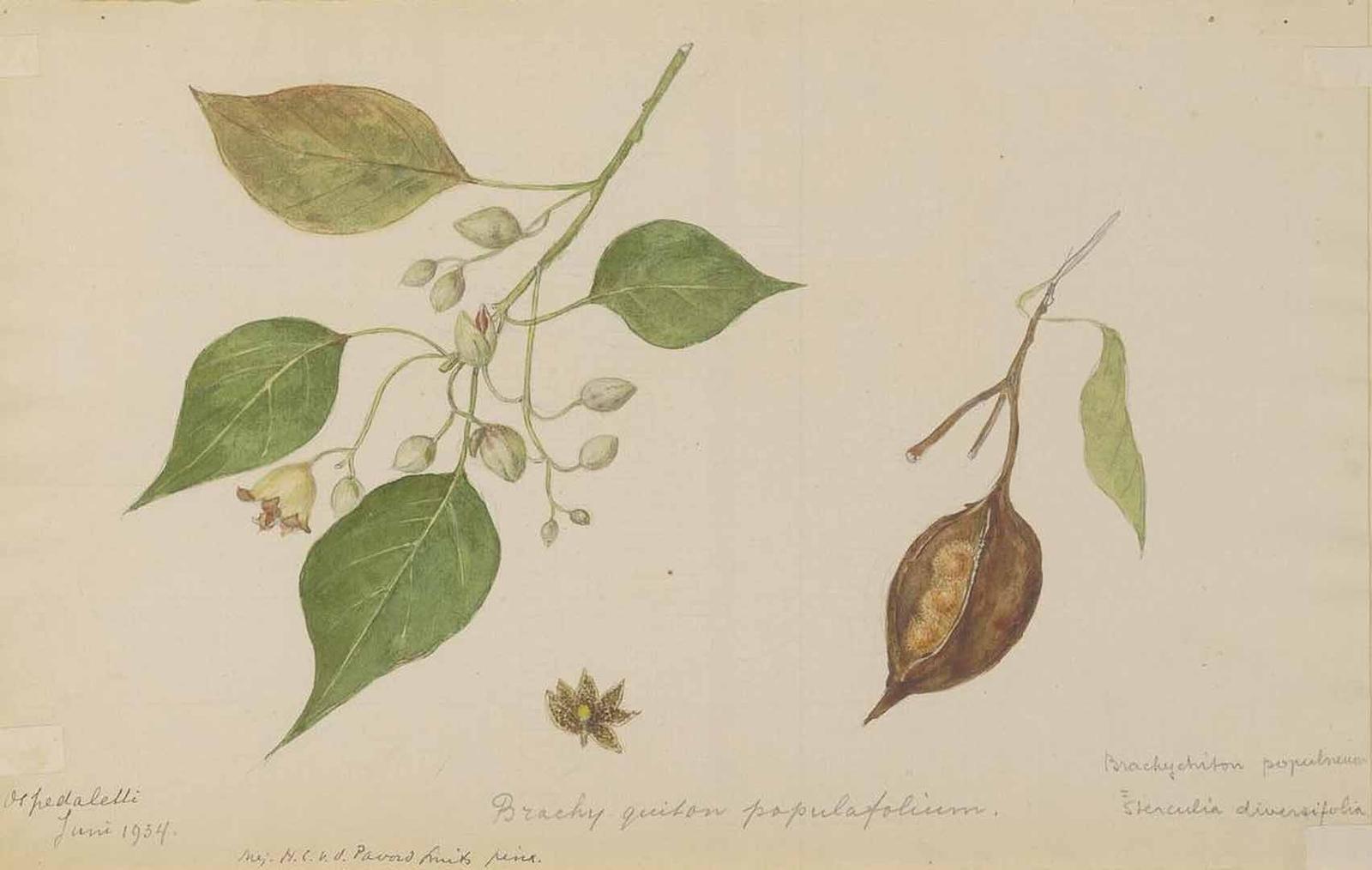Brachychiton populneus (Schott & Endl.) R.Br.
MalvaceaeEl nombre genérico proviene del griego brachys, que significa corto y chiton, túnica, aludiendo a sus escamas imbricadas y pelos cortos. El término populneum es un adjetivo en género neutro cuyo significado hace referencia al álamo. También es conocida esta planta con el nombre de esterculia, nombre que deriva de Sterculius, dios romano de los retretes; no es de extrañar que los romanos divinizaran su red de cañerías, de las mejores del mundo antiguo, sobre todo si tenemos en cuenta la importancia que para la salud pública supone una adecuada evacuación de las aguas residuales. Un espectacular ejemplo de sistema de alcantarillado romano cerca de Sevilla lo tenemos en Itálica, ciudad de origen de los emperadores Trajano y Adriano. Existen allí cloacas lo suficientemente altas para que una persona pudiera entrar a limpiarlas. Su mantenimiento es así más accesible que muchas de las alcantarillas de la propia Sevilla actual. Esterculia en fin tiene relación en latín con stercus, que significa excremento, estiércol, denominación aplicada a esta planta por el mal olor de hojas y frutos de algunas especies. Es un árbol procedente de Australia, donde se emplea como planta forrajera. No empezó a plantarse en Europa hasta comienzos del siglo XIX, con fines ornamentales.
Procedencia
OceaníaCalendario
Hábitat
Morfología
 Árbol
Árbol
 Cónica
Cónica
 Simple
Simple
 Ovada
Ovada
 Romboidal
Romboidal
 Alterna
Alterna
 Ondulado
Ondulado
 Entero
Entero
 Cuneada
Cuneada
 Aristado
Aristado
 Perenne
Perenne
